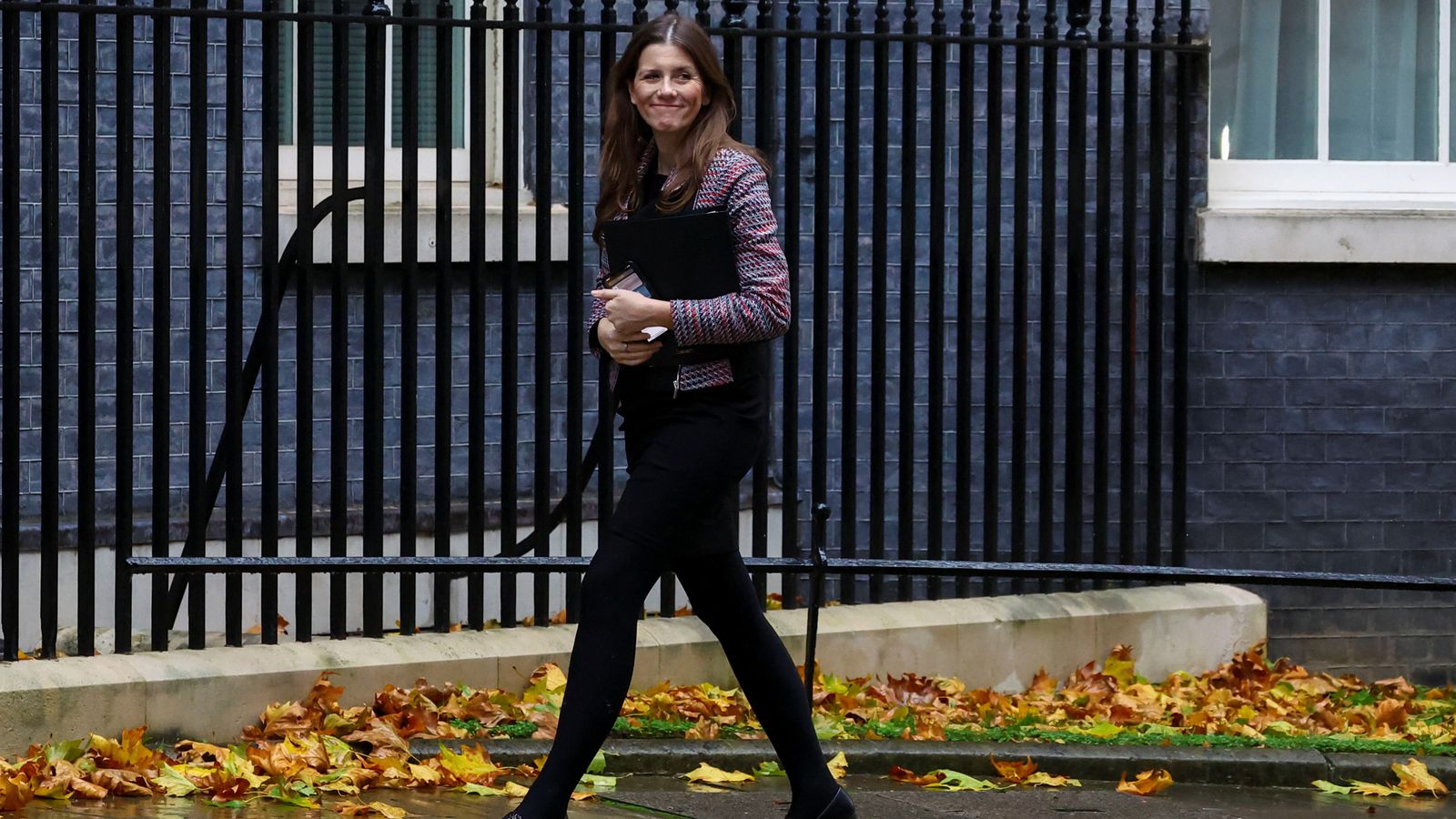Ministers are launching a shake-up of their departmental boards in a move that has resulted in prominent businesspeople leaving midway through their terms.
Sky News has learnt that Michelle Donelan, the science, innovation and technology secretary, will this week authorise the start of a search for a crop of non-executives to join the newly created ministry’s board.
Officials in Ms Donelan’s department said she wanted its leadership to reflect the sectors it oversees, and to lead the way in overhauling how Whitehall is run.
A source close to her said: “Michelle wants her new department to literally change the world – and to do that she wants to bring the biggest, brightest and best talents from across science and tech in the UK, right into the heart of Whitehall and really shake things up.
“This is about radically overhauling how Government departments work, to be responsive and agile just like a start-up.
“She wants fresh perspectives, from people who really understand how to put bright ideas into action.”
Rishi Sunak’s recent reorganisation of Whitehall – creating a new business and trade department, as well as one focused on energy and net zero – is expected to mean that existing slates of non-executive directors could step down, rather than be automatically appointed to newly constituted boards.
RMT union members at Network Rail vote to accept new pay offer
Amazon to cut 9,000 jobs in its cloud services, advertising and Twitch units
DUP to vote against key part of Windsor Framework over ‘fundamental problems’
Ms Donelan served as Mr Sunak’s culture secretary prior to the creation of DSIT.
Examples of senior business figures drafted into government-appointed roles include Peter Mather, a former BP executive who joined the Business, Energy and Industrial Strategy board exactly a year ago, and Stephen Hill, a former Financial Times executive, who also sat on the BEIS board.
Government departments began appointing external directors from the private sector under the coalition government led by David Cameron in 2010.
Some ministers – notably Michael Gove, now the chancellor of the Duchy of Lancaster – have faced accusations of cronyism over their persistent appointment of close associates to the roles.
Others, however, have welcomed the insight provided by business leaders as they target improvements in the operation of the machinery of government.










